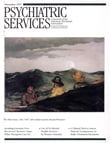Clinically based risk management principles for recovered memory cases
Abstract
Controversy over cases involving so-called recovered memories of sexual abuse has threatened to divide the mental health field, just as lawsuits based on recovered memories have sometimes divided children from parents and others. The authors review issues in this controversy, including the role of misdirected advocacy for recovered memory by some practitioners, the distinction between the actual events and patient's narrative truth as a factor in the therapeutic alliance, and the contrast between therapeutic and legal remedies. They recommend nine clinically based risk management principles to guide clinicians in dealing with cases involving recovered memory. They include the need for documentation and consultation; the value of psychotherapeutic neutrality, maintaining a calm perspective, and understanding the difference between historical and narrative truth; the incompatibility of the roles of treater and forensic expert; the risks of special therapies such as hypnosis; awareness of the roles of other professionals and the significance of the patient's family; and the importance of knowing when to end treatment.



